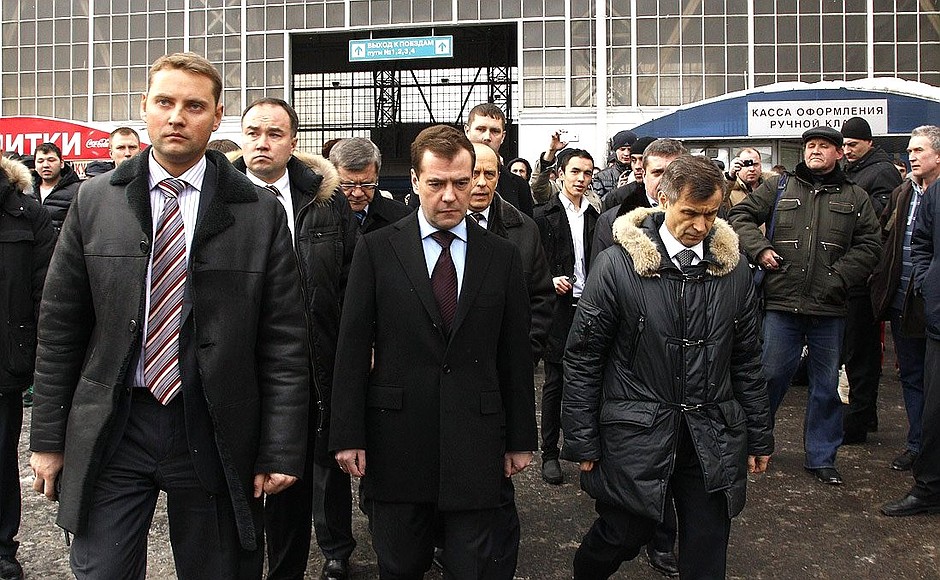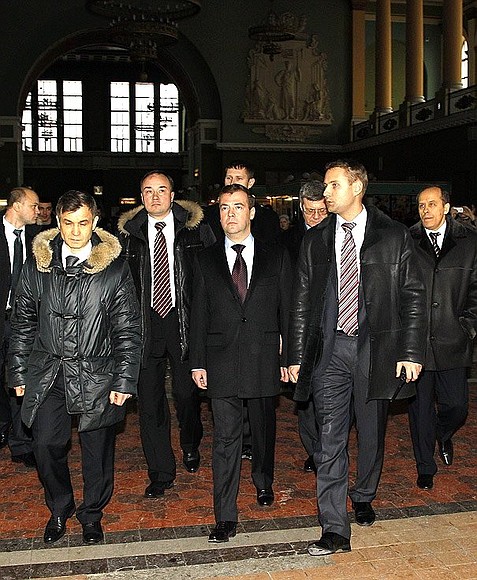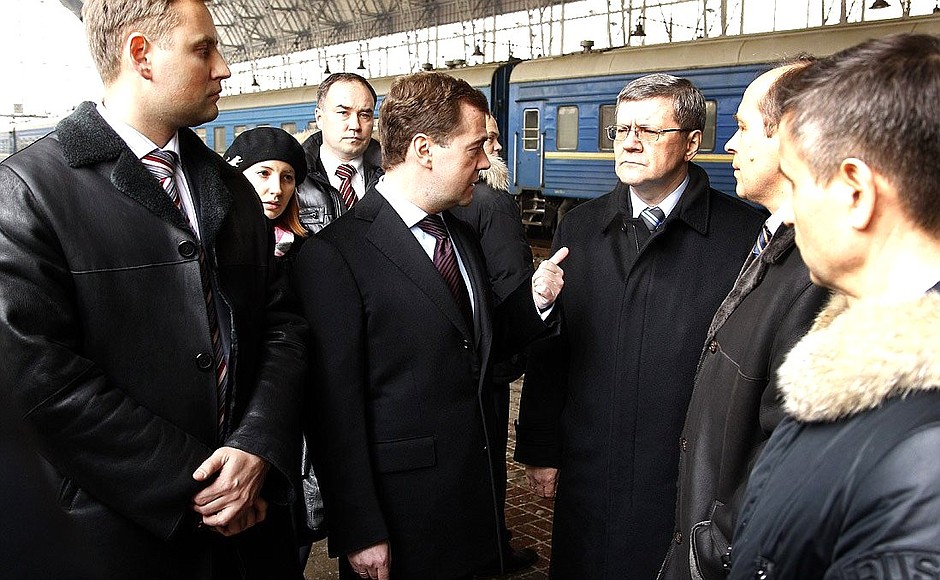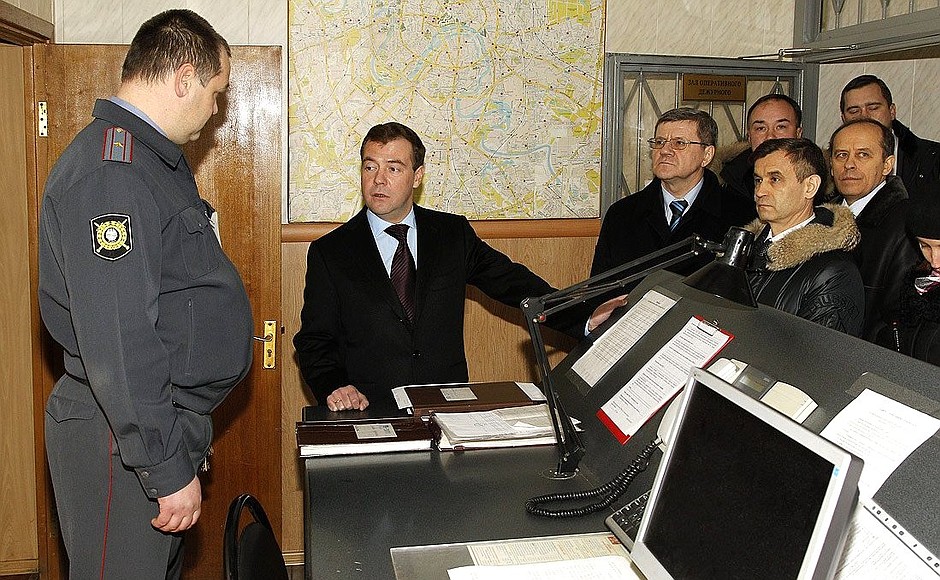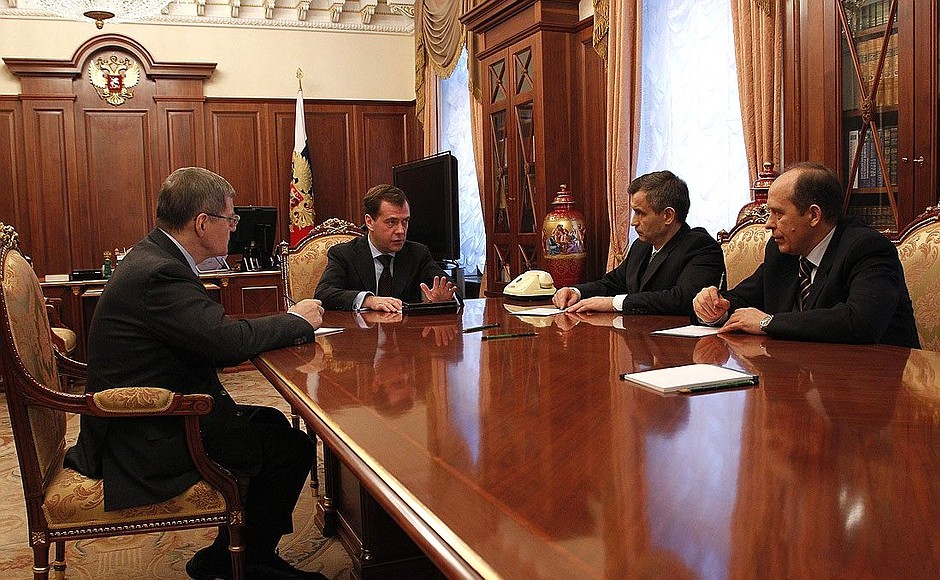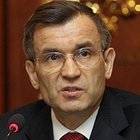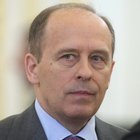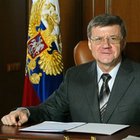During his visit to the Kievsky railway station, Dmitry Medvedev did not see a single police officer. Moreover, there were no metal detectors at the station entrances.
The President instructed the Prosecutor General to check the work of Russian Railways, which has violated instructions on rail transport security. Dmitry Medvedev also instructed Interior Minister Rashid Nurgaliyev to take urgent measures addressing the problems in the work of police officers at all railway stations.
After the unexpected visit to the Kievsky railway station, Dmitry Medvedev instructed Russian Railways CEO Vladimir Yakunin to restore order at railway stations and report on the results within three days.
Following the inspection, the President held a meeting on transport security.
* * *
President of Russia Dmitry Medvedev (speaking with Russian Railways CEO Vladimir Yakunin on the telephone): Mr Yakunin, I just came from the Kievsky railway station and the situation there is absolutely unacceptable. There are several problems.
First, there is not a single metal detector. Unfortunately, nothing has been done despite all the instructions that have been issued. I asked the railway station director and the local police chief, and both said that they had sent requests to their superiors to be supplied with all the necessary equipment, but nothing has happened.
Second, and this is an issue I will take up with the Interior Ministry’s leadership and other colleagues, the number of police officers is practically non-existent. There is no security there, no patrols. Therefore, I would rate the security at the station as unsatisfactory.
I instruct you to remedy the situation at all Moscow railway stations and report back to me within three days.
Russian Railways CEO Vladimir Yakunin: Mr President, may I make my report?
Dmitry Medvedev: Not now.
Vladimir Yakunin: One question.
Dmitry Medvedev: Please, do as I said, and then report to me.
”It is vital to monitor the situation at railway stations in the same way as at the airports. I assumed that following the tragedy, the terrorist attack at the Domodedovo airport, heads of other transport units and facilities will draw relevant conclusions.“
(Addressing the meeting participants): We have just visited one of Moscow's railway stations together. In my opinion, the situation there is typical, unfortunately. It is no worse and no better than in other places, and we must draw certain conclusions from that.
Conclusion number one: it is vital to monitor the situation at railway stations in the same way as at the airports. I assumed that following the tragedy, the terrorist attack at the Domodedovo airport, heads of other transport units and facilities will draw relevant conclusions. This has not happened yet, which is why I have just issued instructions to the Russian Railways CEO to ensure basic security is in place within three days.
I emphasise, we are not talking about any extraordinary measures but there must be metal detectors, police patrols and better control. Yes, the station has security cameras, but nonetheless, security is not at the level our country needs at present.
Regarding the Interior Ministry: Mr Nurgaliyev, you saw for yourself that one entrance to the station was covered by a police officer, but there was nobody at the second entrance. There were four officers at the line transport police unit. We are currently reorganising the Interior Ministry, but that does not mean that we should weaken police presence at transportation hubs. These are the most vulnerable and critical facilities. Therefore, regroup your officers and do it in such a way that railway stations and other transportation hubs, as well as all facilities that can be vulnerable to terrorist attacks, have sufficient number of officers.
If necessary, transfer personnel from other units. This should not affect the overall decision which I took on the numbers of Interior Ministry personnel but you must increase police presence at certain locations, and transportation facilities are among such places.
What about patrolling and sniffer dogs? Where are they? Nowhere to be seen. Anybody who wants to can enter the station from anywhere. You need to look into this. As we said after our latest visit to the metro, we must organise a modern sniffer dog service. Dogs are irreplaceable in this regard, despite detectors and all kinds of other equipment for detecting explosives. There is also the factor of physical presence, which is absolutely obvious.
This is all on the subject of increasing the Interior Ministry’s presence. The Federal Security Service will be in charge of coordinating the efforts to strengthen security.
”Unfortunately, we sometimes fail to learn a lesson even from the most tragic events. Therefore, if the heads of relevant departments, companies and government agencies are unable to follow orders and to take necessary measures, we will have to make personnel decisions.“
Mr Bortnikov, I would like you to analyse the situation at major transportation hubs and ensure that they have all the necessary support. Your officers are posted at such facilities as well, and it is important that they don’t just walk around or drink tea but work as they should. Incidentally, we must find out what they were doing when we were there. Find out who was on duty and what were their responsibilities, and we’ll talk about it at our next meeting.
Now, as for the role of the Prosecutor General’s Office: Mr Chaika, please check compliance with transportation legislation at railway stations because I’m afraid our colleagues take everything too literally. If there is a terrorist attack at an airport, everyone starts running around airports, ignoring all other places. Unfortunately, this shows carelessness and a lack of a systematic and responsible approach.
Therefore it is necessary to conduct an investigation and issue recommendation based on its results. If necessary, we should look at who is responsible for the current lack of security, and possibly issue formal warnings.
On the whole I would say that, unfortunately, we sometimes fail to learn a lesson even from the most tragic events. Therefore, if the heads of relevant departments, companies and government agencies are unable to follow orders and to take necessary measures, we will have to make personnel decisions. Part of the instructions on the transport sector has already been issued and I intend to bring this work to its conclusion, so that every head of a transport company or a state agency responsible for transport security, must realise that this is their responsibility and it cannot be shifted somewhere else. This applies to transport administration authorities, law enforcement agencies and security agencies. Everyone must work towards a single result. These efforts will continue.
<…>
